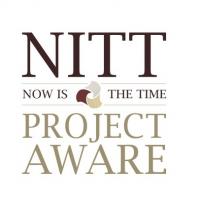
The New Hampshire (NH) Department of Education is pleased to announce it has received nearly $10 million from the U.S. Department of Health and Human Services, Office of Substance Abuse and Mental Health Services Administration, to implement Project AWARE (Advancing Wellness and Resilience in Education) over the next five years. These funds were included in the President and Vice President’s Now Is the Time plan to increase access to mental health services and make schools safer.
Oversight & Coordination
The NHDOE will be the oversight and coordinating entity responsible for project implementation.
Implementation
The primary goal of the New Hampshire “Now Is The Time” Project Advancing Wellness and Resilience in Education (AWARE) is to foster systems that promote child safety and mental health. Project AWARE takes steps to encourage and sustain local resources that can address mental health and substance abuse issues. It creates lines of communication and organizational relationships that greatly increase the liklihood that mental health and substance abuse issues will be dealt with appropriately, and in a way that will result in the most positive possible outcomes.
Project AWARE will serve approximately 4,000 children, youth, and families per year and train approximately 700 youth-serving adults per year in partnership with three Local Educational Agencies, Berlin Public Schools, Franklin School District, and SAU #7 serving Colebrook, Pittsburg, and Stewartstown.
Goals
The goals of Project AWARE-NH are:
1) Provide Youth Mental Health First Aid and Mental Health First Aid training to teachers, athletic coaches, playground attendants, and others who can detect and respond to mental health issues.
2) Use a multi-tiered framework that reduces school violence, bullying, behavior problems, suspensions, substance abuse and punitive/exclusionary discipline practices.
3) Reduce the need for intensive treatment, out-of-home placement, hospitalization, or incarceration of children and youth in each region.
4) Substantially improve engagement of school, families, and youth in decision-making at the policy, practice, and individual levels.
